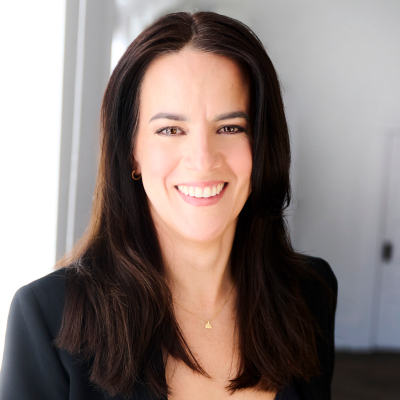This is the second in a series of articles about family enterprise founders who are contemplating an exit by Elke Rubach, president of Rubach Wealth. In this series, we explore the quiet fatigue that founders rarely admit to, why holding on too long can damage wealth and relationships, how silence can breed entitlement, and how to redefine retirement.
For many founders, stepping aside doesn’t feel like evolution—it feels like erasure.

For decades, the founder has been the person everyone relies on: the decision-maker, the fixer, the one who carries the weight of the business and the family name. It’s an identity forged in responsibility. But what happens when that responsibility goes away?
Who will the founder be when he or she is no longer the one holding it all together?
This is the hidden identity crisis that makes succession so emotionally complex. On the surface, founders tell themselves the next generation “isn’t ready” or that “it’s simply not time yet.” But underneath, it’s usually fear—fear of irrelevance, fear of losing purpose, fear of the unknown.
The trouble is, waiting doesn’t make the successors more capable, nor does it make them more ready. It simply raises the stakes.
The cost of waiting too long
Holding on too long doesn’t just frustrate the family. It silently erodes value—and often in ways founders don’t see until it’s too late.
The value of the enterprise stalls: Without fresh leadership and ideas, innovation slows. Key employees sense the lack of progression and choose to leave, taking talent and institutional knowledge with them.
Tax exposure grows: Delayed share transfers and outdated estate freezes quietly become capital-gains time bombs, creating enormous tax bills for heirs.
Liquidity gaps widen: Without proper planning, the next generation may be forced to sell assets—sometimes even the family business—just to pay the CRA.
Family trust fractures: Siblings and cousins left in limbo become resentful or disengaged, often leading to long-term relational damage.
Even the wealthiest families are not immune. Around the world, delayed transitions have forced rushed fire sales, triggered avoidable taxes and created conflicts that drained millions in legal fees. Wealth, even at the highest levels, is far more fragile than it appears.
The King Charles problem
A common pattern sometimes plays out across family enterprises. Founders in their late seventies or eighties still hold full control. Their heirs, already in their fifties or sixties, wait in limbo, unable to lead decisively. By the time the founder finally steps aside, the second generation has missed its own prime years, and the third generation is disengaged entirely.
It’s what some call the King Charles problem—waiting so long for succession that it weakens not only the heirs but the entire enterprise.
When leadership passes too late, it’s not a smooth handover. It’s often abrupt, reactive and destabilising.
Letting go doesn’t mean losing relevance
Here’s the mindset shift that many founders struggle to see: Stepping back doesn’t mean disappearing.
It means redefining their role, perhaps moving from operator to mentor, guiding rather than managing. Or it can mean shifting from decision-maker to cultural anchor, ensuring values endure. Or they might transition from founder to architect of legacy, shaping the structures that will sustain the business beyond them.
This is how they stay relevant without being the bottleneck. But it only works if it’s intentional.
Waiting until health, age or family conflict forces the conversation leaves fewer choices and more damage. A thoughtful transition gives them control over the narrative and the structures they leave behind.
The real legacy risk
The longer founders delay, the more they expose the family to unnecessary costs and chaos.
Unclear governance could lead to sibling disputes over ownership and authority. Outdated wills might trigger probate delays, extra taxes and unintended consequences. Capital-gains liabilities grow larger every year that succession is deferred, reducing the wealth available for future generations.
Control feels like protection. But without structure, it’s an illusion. Holding on for too long often leaves successors with more problems than clarity.
The question that changes everything
Instead of asking, “How do I let go?”, founders should start with better questions:
- “Why am I still holding on?”
- “Am I truly protecting the business, or just protecting my sense of self?”
- “What will it cost—in taxes, trust and relationships—if I wait too long?”
At some point, holding on doesn’t preserve their legacy. It quietly puts it at risk.
Clarity before crisis
The strongest legacies are built when founders step back before they’re forced to. That doesn’t mean disappearing. It means having the clarity to design a future where their influence remains but doesn’t suffocate.
When they plan early, they give successors the confidence to lead while ensuring the enterprise remains strong. They minimize taxes, prevent disputes and create space for the next generation to step into their own identity.
When they wait, they don’t just lose time—they lose options.
Succession isn’t about walking away. It’s about walking forward into a role that ensures their values and your wealth outlive them.
Previously in this series:
Elke Rubach is a Certified Financial Planner with CLU and MFA-P designations. Her expertise lies in optimizing income and tax efficiencies, achieving cohesiveness in financial and estate plans, and providing ongoing asset management strategies that foster wealth accumulation and growth. Elke is a reformed lawyer who earned her graduate degree in law, with a focus on banking and finance, at the London School of Economics, where she studied on a Chevening Scholarship. She worked as an associate at the London (U.K.) and Toronto offices of the law firm McCarthy Tetrault. During a stint in banking, Elke observed the life-changing impact of good financial advice and decided to switch to a career in financial planning and wealth management. She founded Toronto-based Rubach Wealth in 2012. Today, Elke is a sought-after speaker on wealth management, estate planning and philanthropy. She’s the founder of Fashion Heals for SickKids, which has raised more than $500,000 for pediatric cancer care and research since 2016. She also gives back with board and volunteer commitments with the Professional Advisory Council for SickKids Foundation, the Investment Committee at the Office of the Public Guardian, the advisory board for Transpod Inc., and the board of Ronald McDonald House Charities in Toronto.
The Canadian Family Offices newsletter comes out on Sundays and Wednesdays. If you are interested in stories about Canadian enterprising families, family offices and the professionals who work with them, but like your content aggregated, you can sign up for our free newsletter here.
Please visit here to see information about our standards of journalistic excellence.




